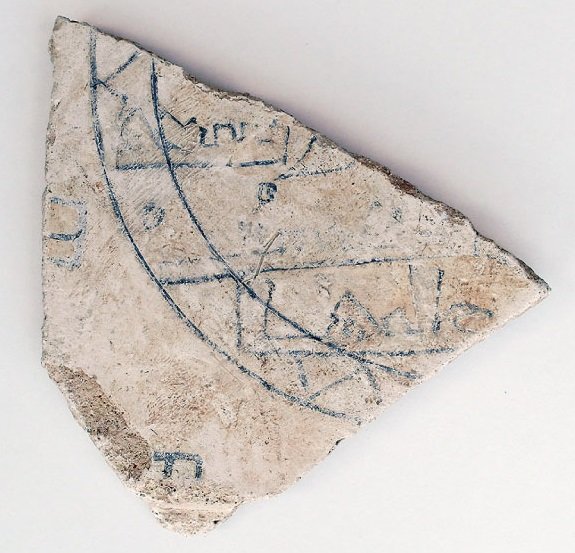Fragment of painted wall decoration
- Object Name
- Fragment of painted wall decoration
- Culture / Site
- Excavated at Sijilmasa, Morocco
- Medium
- Plaster
- Date
- 9th/10th century
- Dimensions
- 21 x 19 cm
- Credit Line
- Ministère de la culture et de la communication du Royaume du Maroc. Photograph by Fouad Mahdaoui
- Section
- Saharan Frontiers/Sijilmasa
- Description
Sijilmasa was a sizeable and wealthy urban center in its heyday. The Andalusian historian and geographer Abu ‘Ubayd al-Bakri (d. 1094) described the city as “a wall with twelve gates. Within are beautiful houses, many having gardens, magnificent public buildings, a mosque that is solidly built, and baths that are poorly built.” This fragment of painted plaster bears a portion of an inscription from the Qur’an that would have read in full, “On no soul doth God place a burden greater than it can bear. It gets every good that it earns, and it suffers every ill that it earns.” It was found at the site of an elite residence of the ninth or tenth century. Just a century or two later, a mosque was built on the same location.
